13 Plastic-Free Food Storage Containers Making You The Envy Of The Lunchroom
We spend a lot of time in our kitchens, so we should want to make that time as eco-friendly as possible.
Saying ‘no’ to food waste and plastic is a recipe for a zero waste kitchen—for which plastic-free food storage containers are an essential ingredient.
While we’re big advocates of apartment composting and experimenting with food scraps (to flavor kombucha, for example), how we store food is our biggest defense against food waste.
Figuring out how to preserve food at home is crucial for cutting down on the 40% of food that ends up rotting in the landfill.
To avoid adding to that stat, we’ve curated the best non-plastic food storage solutions to suit your food-saving needs.
So snap on, clip in, and screw on as we open up each solution.
Everything we recommend to you on Sustainable Jungle is independently researched and we ask all brands to confirm their claims. To avoid waste, we test products on an as needed basis. This post contains affiliate links. If you buy something through our links, we may earn a small commission. Learn more about why we do this here.
The Top Sustainable Storage Containers Keeping Your Pantry Plastic Free
How to be eco-friendly with food storage?
Start by replacing hard-to-recycle ziplock bags with Stasher’s reusable silicone bags that are safe for the freezer, oven, dishwasher, microwave, and sous vide machine.
Caraway offers premium ceramic-coated glass food containers free of harmful chemicals and safe for the dishwasher, microwave, and oven.
For something shiny (and completely plastic free), Package Free Shop’s airtight stainless steel zero waste food containers are durable and can be recycled at the end of their shelf life.
Pop to the bottom to learn more about why you should choose eco-friendly containers for food. Or watch our video below where we break down the pros and cons of each material.
The Best Eco-Friendly Food Storage Containers
Plastic-Free Glass Food Storage Containers
Stainless Steel Containers For Food
Silicone Food Storage Containers
Sustainable Food Storage Wraps
Cloth Eco-Friendly Food Storage Bags
1. Water Or No Storage Whatsoever
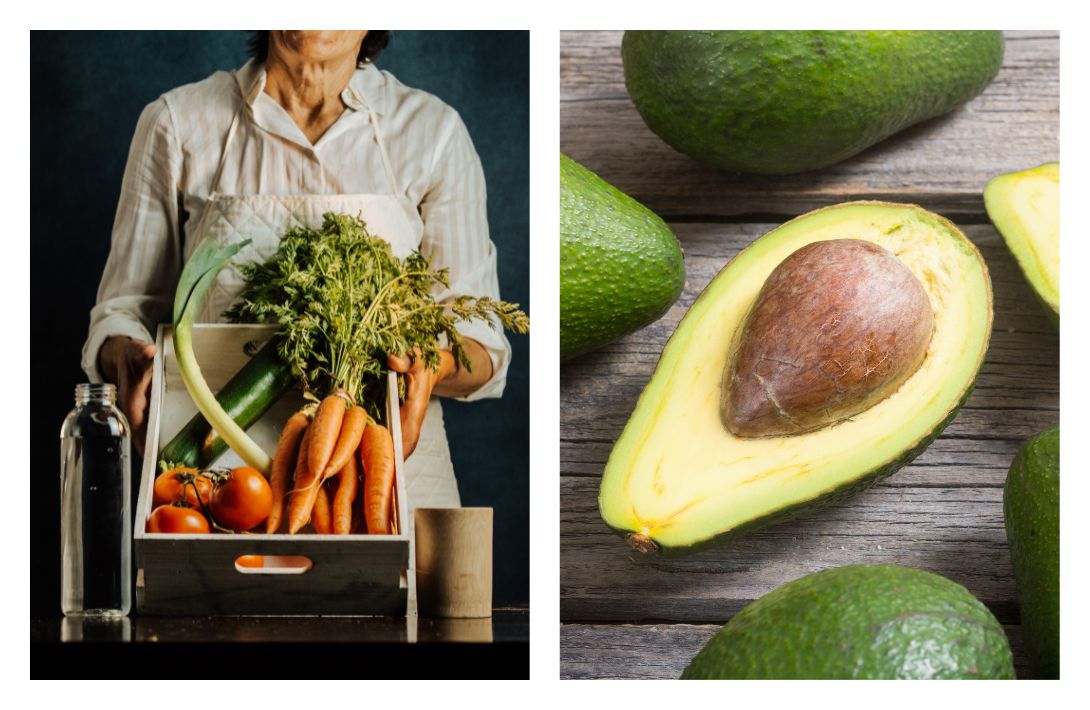
Think you need to buy something new to take advantage of sustainable food storage solutions?
Think again.
Sometimes the best storage solution is something you already have. Or, in the case of produce, what the food itself already has.
Natural protective skin is the in ultimate healthy food storage containers, and can be found on produce like:
- Non-cherry stone fruits (peaches, pears, plums)
- Avocados
- Mangoes
- Tomatoes
- Apples
- Melons
- Squashes
- Garlic
- Onions
- Potatoes
And since you aren’t always using containers to prevent product waste, take time to learn how to store food properly (i.e., what needs refrigeration, what doesn’t, and what items can’t be stored together).
Water As Zero Waste Food Storage
While some types of produce don’t need special sustainable food storage containers, others do better with a little bath.
Hardy vegetables like celery, potatoes, and carrots last significantly longer after being cut if stored in fresh cool water.
The same method can store cut apples and keep halved avocados looking greener for longer.
You can also fill a glass jar an inch or two to submerge the root end of fresh herbs. Just trim the ends first and keep this in the refrigerator door for an even longer life.
Similarly, store some long-stemmed greens in a jar with water, like flowers in a vase. These include collard greens, kale, and Swiss chard. You can do the same with asparagus after cutting off the ends,
Plastic-Free Glass Food Storage Containers
Is it better to store food in plastic or glass?
When it comes to eco-friendly reusable food containers, there’s no question who wins the glass vs. plastic debate.
Being fully recyclable and abundantly available, glass is considered the best plastic-free food storage container.
Unlike plastic food containers, you don’t have to worry about common contaminants such as BPA, BPS, and phthalates.
Nor do you have to worry about your plastic-free glass tupperware being stained by tomato sauce or having a lingering scent of last week’s leftovers.
You can reheat glass over and over without worrying about chemical leaching, and their dishwasher safe status makes cleaning a breeze—especially when leftovers get forgotten in the back of the fridge for weeks.
While we’re big fans of reusing glass jars as much as possible, in some instances, it’s better to invest in something a little more durable.
When you store food in high-quality glass—like tempered glass or borosilicate glass (AKA Pyrex)—you have a storage option that should last a lifetime.
Tempered glass is heat-treated, making it even more durable, especially when exposed to heat or shock.
When that glass container does suffer an unfortunate tumble, it will break into easy-to-clean cube-shaped pieces instead of thin shards that are hard to find… until they end up in your foot later, that is.
Borosilicate glass contains 5% boric acid, which makes it resistant to thermal shock and chemical corrosion. It’s a good choice for freezing and baking but tends to be more expensive.
When you have to get rid of a glass container, it’s infinitely recyclable, making for zero waste food storage containers.
2. Caraway
Caraway’s non-plastic containers include non-toxic ceramic-coated glass cubes with Air Release Technology to keep your food fresh and odor free.
There are three main sizes, along with additional Dot and Dash mini containers ideal for sauces and snacks.
Silicone storage straps make toting your lunch to work a spill-proof breeze.
You can shop individually, or opt for eco food storage sets that include eco-friendly pantry storage organizers to keep your cabinets tidy and help you save space
The refrigerator/freezer-safe plastic-free glass tupperware is free of BPA, BPS, PFOA, PTFE, and heavy metals.
With dishwasher-safe materials and a non-toxic non-stick ceramic coating, clean-up is a breeze.
While these are generally oven, freezer, and microwave safe non-plastic food storage containers, the lids and Dot and Dash pieces should not be microwaved.
3. Glasslock
Glasslock plastic-free containers are tempered glass that is five times stronger than ordinary glass.
It’s BPA-free, oven-safe (except for very high heat), non-toxic, refrigerator/freezer safe, microwave-safe, and dishwasher safe (though keep it on the top rack to be safe).
The lids have an integrated water and airtight silicone seal, and if one mysteriously vanishes you can get free replacements on their website.
These glass containers come in several sizes and shapes (circular and rectangular).
Also available on Biome (AU)
4. Old Glass Jars
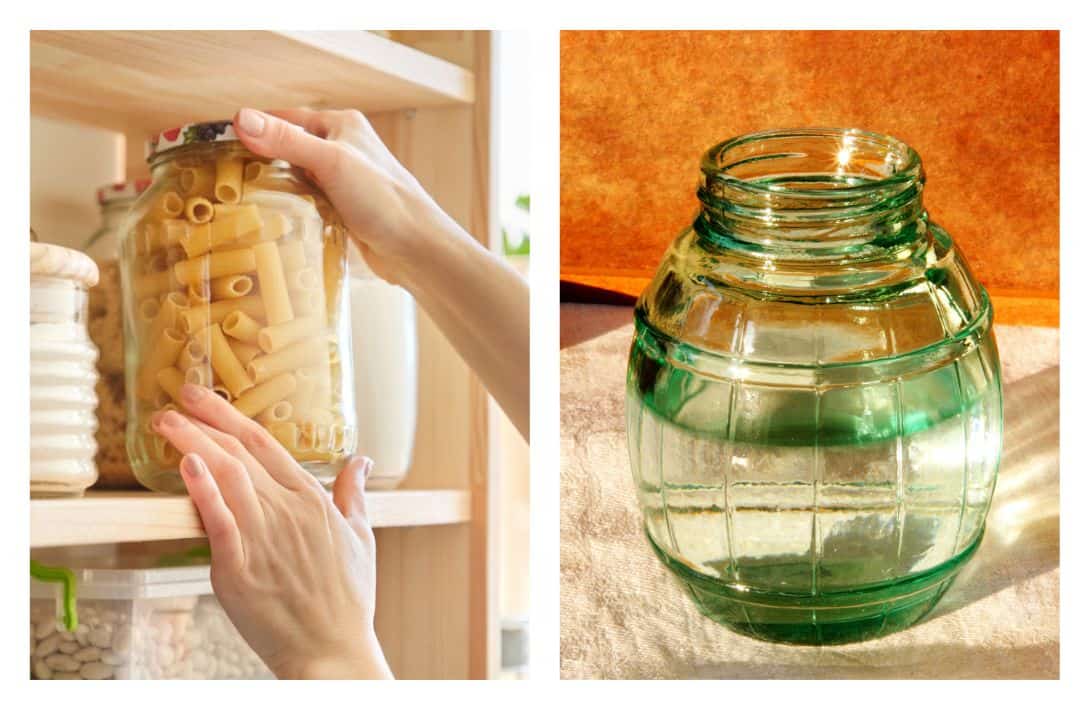
Being sustainable often means being creative and upcycling what we already own.
In fact, the most eco-friendly thing we can do (in any situation) is to reuse.
The best non-plastic food storage container is something you probably already have in your kitchen: the humble glass jar.
Pasta sauce, nut butter, vegetable oil, pickles, and many other types of food often come in reusable glass containers that serve as an excellent (and cheap) non-plastic tupperware solution.
Reused glass also happens to be one of the few materials the FDA has deemed “generally…safe”.
Just ensure you sanitize first with some hot water and zero waste dish soap.
Glass jars can store a range of foods, but given their shape, they’re ideal for liquids or small foods: soups and stews, homemade trail mix or granola, popcorn or potato chips, bulk grains, nuts and seeds, or smaller fruits and vegetables and herbs.
Glass containers can also be stored in the fridge and freezer (if they aren’t filled to the brim, giving food room to expand when frozen).
And if you need more motivation to choose the jar, know that for every six tons of reused glass containers, carbon dioxide emissions are reduced by one ton!
There’s a certain satisfaction in applying one of our favorite Rs of zero waste.
Stainless Steel Containers For Food
Metal is another go-to substitute for plastic food containers and is the material of choice to store food around the world.
In India, for instance, stainless steel containers (just like the stainless steel thali dishes you probably find at your favorite Indian restaurant) are used for food storage instead of old plastic Tupperware.
In fact, when it comes to eco-friendly food storage, steel makes for the safest food storage containers.
Like glass, stainless steel is non-porous, meaning colors and flavors won’t embed themselves in the container.
It also doesn’t absorb bacteria or leach toxic chemicals like BPA and phthalates.
For the most part, stainless steel can be used in a freezer, refrigerator, and oven.
While infinitely recyclable itself, stainless steel is often mixed with materials that are NOT recyclable, like paints and resin linings. So if you’re choosing stainless steel, opt for pure, unpainted stainless steel with no mixed materials.
Aluminum is another option, but given aluminum can leach heavy metals into food when heated or storing acidic foods, you want to look for aluminum with coatings (like ceramic) so the aluminum itself doesn’t touch the food.
If you opt for these plastic-free food containers, look for high-grade or food-grade stainless steel to resist rust and maintain freshness for longer.
5. ECOlunchbox
ECOlunchbox provides various durable non-plastic food storage options in various sizes, shapes, and configurations.
Each piece of plastic-free tupperware is made from 100% high-quality, food-grade stainless steel, free of BPA, BPS, and phthalates.
They also include the tare weight etched on the bottom, making purchasing bulk foods hassle-free.
The Certified B Corp also offers pieces with non-toxic food grade silicone lids, like the Seal Cup Trio, making them the perfect non-plastic food storage containers for children.
6. Package Free Shop
Package Free Shop’s non-plastic storage and food containers are made from ultra-durable 18-10 food grade 316 stainless steel that dishwasher, oven, and fire safe, but not microwave safe.
The airtight lids feature a non-removable silicone seal that has been factory-installed without adhesive.
At the end of the container’s lifespan, the base and silicone seal can be recycled wherever metal and silicone are accepted.
The best part?
Every container is shipped in a 100% plastic-free post-consumer cardboard box with paper wrapping, labels, and tape—all recyclable and compostable.
7. U Konserve
U Konserve has a range of environmentally friendly tupperware options, including circular and rectangular nesting storage and to-go containers.
Everything is made with non-toxic stainless steel that is free of BPA, lead, and phthalates.
In an effort to transition away from the formerly #4 plastic lids, they now offer food grade silicone lids for all containers.
U Konserve is a member of 1% for the Planet.
8. Life Without Plastic
Life Without Plastic is (obviously) the perfect place to look for healthy food storage containers.
Their small and large stainless steel containers are fitted with airtight and water-tight lids.
For food storage on the go, see their set of five nesting round containers in small and medium sizes. Non-plastic containers aside, they’re also one of the best zero waste online stores for homewares outside the kitchen
Silicone Food Storage Containers
If you’re looking for non-plastic freezer containers, say hello to silicone.
Wait, is silicone eco-friendly? Or is silicone plastic?
While the answer to both questions is not all that straight forward, silicone is (almost) always a no-brainer over plastic.
9. Stasher
Many brands have joined the alternatives to Ziploc bags space, but Stasher was the first.
They have a plethora of sizes, colors, and shapes of silicone bags to choose from—including smaller snack bags and sandwich bags, as well as ones large enough for entire meals or bulk foods like grains and beans.
Why are people stashing Stasher bags?
Because they’re the only airtight, non-plastic food storage bags on the market that are “self-sealing” and safe to use in the freezer, oven, dishwasher, microwave, and sous vide machine.
For those reasons, we recommend them if you want to freeze meat without plastic.
Because they’re made with 100% pure platinum-grade silicone (better than food grade), they’re free of BPS, BPA, lead, phthalates, and latex.
Stasher uses an SA8000-certified manufacturing facility and partners with TerraCycle to provide you with a means to responsibly recycle unwanted or damaged bags.
Silicone Food Storage Containers
10. Food Huggers
Women-owned Food Huggers provides some of the best non-plastic food storage options for unusually shaped foods.
Tired of brown avocado halves after just one day in the refrigerator?
Let the Avocado Food Huggers keep the green in your future guac.
There’s also products for butter, citrus, apples, onions, cheese blocks, and bowls, all made of 100% Platinum silicone, which is BPA, lead & phthalate free.
The huggers are dishwasher, microwave, freezer, and oven safe, and can be recycled at the end of their lifespan through TerraCycle via their Zero Waste Box.
All are shipped in 100% plastic-free materials.
Sustainable Food Storage Wraps
Beeswax wraps were one of the first solutions to swapping out our reliance on plastic wrap—long before it even existed!
Cloth soaked in beeswax dates back to the time of the Egyptians, but it came about as a food preservation/storage strategy in the 20th century.
In the last couple of decades, beeswax wraps and soy vegan alternatives have exploded as a healthy food storage container to replace plastic wrap and sandwich bags. Once you learn how to use beeswax wraps, you’ll agree there’s no going back.
11. Bee’s Wrap
Bee’s Wrap is a Vermont-based Certified B Corp and Green America Certified Company.
Bee’s Wrap sustainable food storage cloths are GOTS-certified organic cotton coated with sustainably harvested beeswax, organic jojoba oil, and tree resin.
Food uses include fresh veggies, cheese, sandwiches, snacks, and plate and bowl covers. To ensure your Bee’s Wrap stays in good, clean condition for its useful life (after which you can compost it), read up on how to clean beeswax wraps the right way.
12. SuperBee
SuperBee makes reusable beeswax wraps from 100% GOTS-certified organic cotton and a proprietary blend of sustainably harvested, pesticide-free beeswax, organic coconut oil, and tree resin.
The zero waste food storage Certified B Corp is a woman-owned company that empowers women in Thailand, paying 20% more than the living wage suggested by the Fair Trade Association and giving back to the local community.
SuperBee also offers reusable beeswax bags that can last up to two years and be composted after.
Cloth Eco-Friendly Food Storage Bags
13. Vejibag
Why use glass fruit storage containers when you can use cloth?
For something so simple, Vejibag is revolutionary—and one of our non-plastic food storage alternative favorites.
It’s designed to keep fruit and veggies fresh, crisp, and nutrient-rich for two weeks or more using a simple food philosophy: that veggies keep best in cool, damp environments.
Available in standard and large sizes, Vejibags are made of undyed 100% French terry organic cotton that’s grown, milled, and produced in the USA.
Once dampened, they provide a humid, breathable environment to maintain the freshness and crispness of produce longer than plastic bags.
If storing for more than a few days, be sure to re-wet the bag.
Did you know we Have a Newsletter?
We cover the latest in sustainable living, fashion, zero waste, beauty, travel, finance and more…
Why Choose Non-Plastic Food Storage Containers?
By now, we’ve answered your question, “What can I use instead of plastic storage containers?”.
But the question remains: why should you?
Food waste is a significant problem, contributing to ~7% of total anthropogenic GHG emissions.
Many of us have kitchens filled to the brim with plastic storage solutions to try to curb that waste—leading to even more insidious waste.
Plastic is lightweight and generally more affordable than eco-friendly food storage containers, but it raises a hefty bill for our planet and health.
Many of the go-to plastic food storage products are either impossible to recycle or simply aren’t. For example, Ziploc bags have a laughably low recycling rate of 0.2%.
Only our planet doesn’t find this funny.
When these plastics enter landfills, they release chemicals like dioxins. If they float into waterways instead, they become a trap for heavy metals and bacteria.
Plastic can also appear like a tasty treat to marine life, suffocating or exposing them to dangerous contaminants.
Don’t forget, a plastic container is dangerous for humans, too.
Many plastics contain bisphenol A (BPA), which has been associated with adverse health effects, including increased blood pressure, type 2 diabetes, cardiovascular disease, and behavior problems or brain development concerns in children.
Phthalates, which improve the durability of plastic, have also been associated with health complications like reproductive issues, developmental problems, endocrine disruption, increased levels of oxidative stress, disrupted hormone levels, cancer, and more.
Plus, if you’ve ever opened a kitchen cupboard with an aesthetically pleasing arrangement of glass jars, you know that environmentally friendly food containers look better.
Which Plastic Is Safest For Using As Food Storage Containers?
If you can’t afford or run out of non-plastic storage containers for food, selecting plastics that are safe for humans and have lower impact on the environment is essential.
- High-density polyethylene (HDPE): HDPE is a durable, non-toxic plastic often used for food storage containers such as milk jugs, juice bottles, and cereal box liners.
- Low-density polyethylene (LDPE): LDPE is a flexible and lightweight plastic used for food storage bags, plastic wraps, and squeeze bottles.
- Polypropylene (PP): PP is a strong and heat-resistant plastic that is used for food storage containers such as yogurt cups, ketchup bottles, and syrup bottles.
Although these types of plastic are considered safe for food storage, they should be used correctly and not heated above their recommended temperature limits to avoid any potential chemical leaching—which means NO microwave.
It’s always better to select reusable and non-plastic food storage containers, such as glass, stainless steel, or silicone containers, whenever possible.
Are BPA-Free Food Storage Containers Safe?
BPA-free eco-friendly tupperware is generally safer than options including harmful chemicals.
BPA (bisphenol-A) is a chemical used to produce certain types of plastic, including polycarbonate plastic, often used to make food storage containers.
Research has shown that exposure to high levels of BPA can potentially lead to health complications, like hormonal imbalance, reproductive issues, and increased risk of certain cancers.
However, it’s important to note that some BPA-free plastics may still contain other chemicals that have not been thoroughly tested for safety. Some studies have suggested that these alternative chemicals may also have health risks.
Instead, minimizing your exposure to toxic chemicals is better by choosing BPA-free food storage containers, like glass, stainless steel, or silicone food storage containers.
Final Thoughts On The Best Sustainable Food Containers
Remember those Tupperware parties?
Neither do we.
But we hope you remember storing last night’s casserole in something other than your indoor compost bin.
One sustainable food storage bag can kill two birds (i.e. food waste and plastic).
But if you’re replacing old Tupperware with one of the non-plastic meal prep containers on this list, we sure look into what to do with old tupperware and try to recycle or repurpose it if you can.
Plastic-free storage containers for food needn’t necessarily be “new”, either. Look to your own cabinets then thrift stores to find pre-loved plastic-free options as your first food waste solution go-tos.
Have any Sunday meal-prepping friends in need of a food storage overhaul?
Share these brands with them, and let’s support the world of non-plastic food storage alternatives that contribute to sustainable food systems.
Pin these:
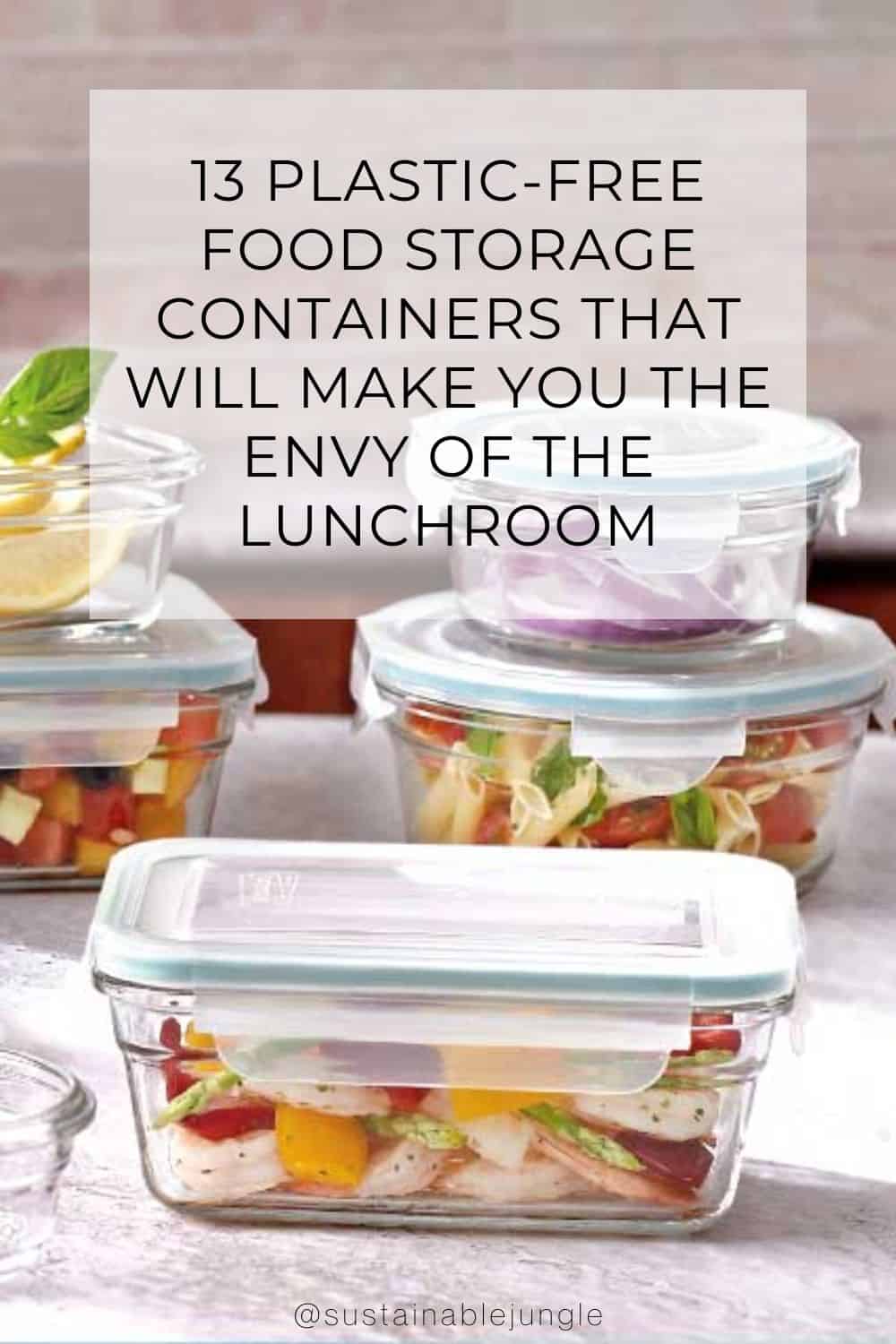
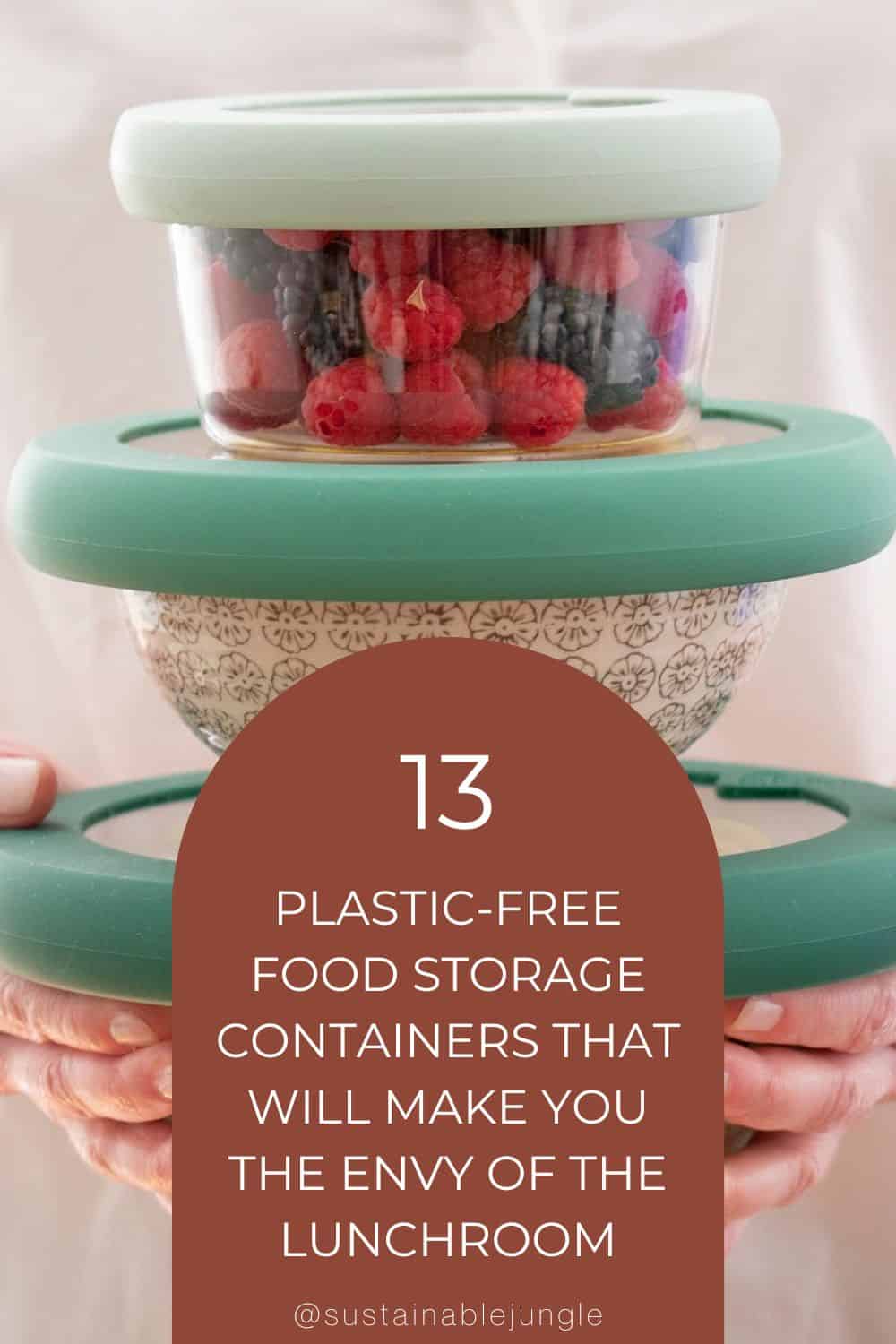


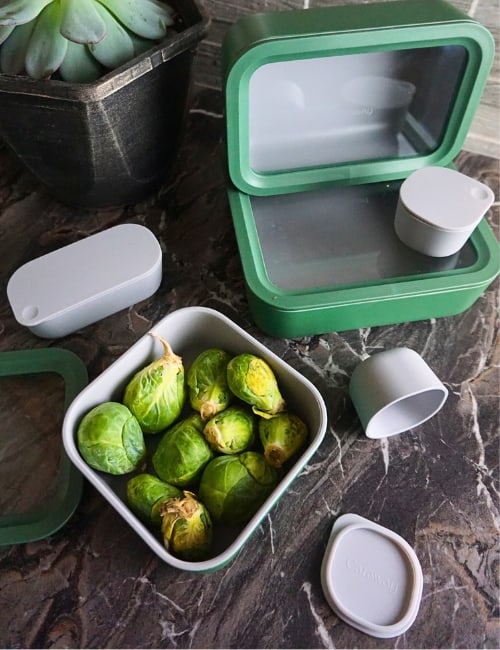
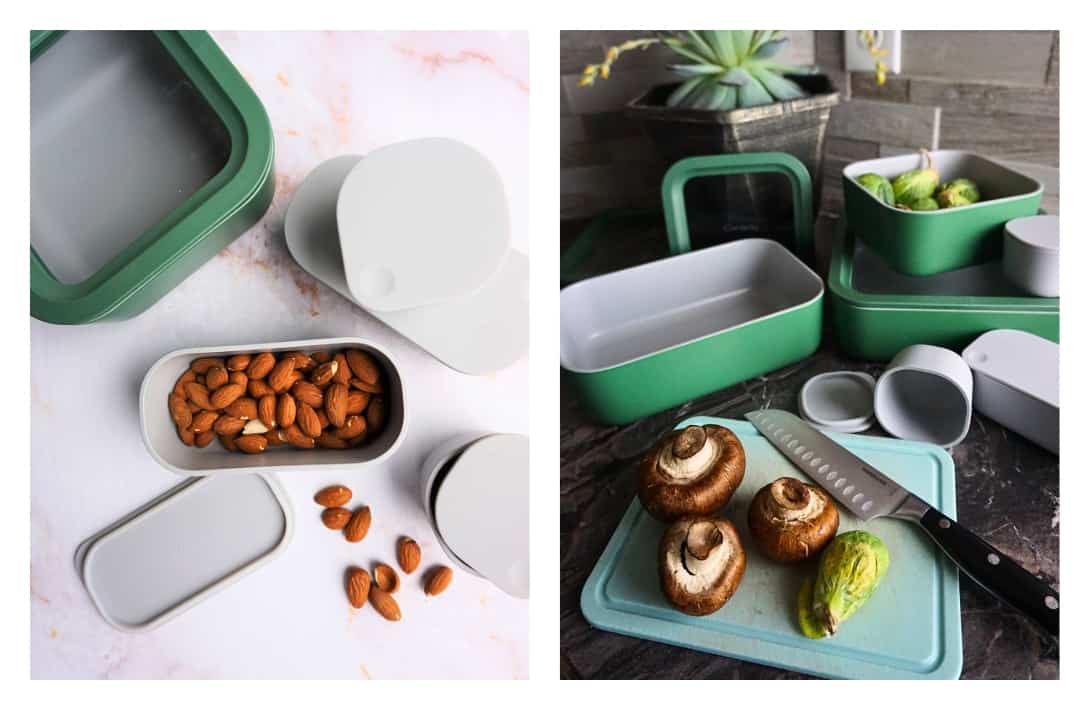
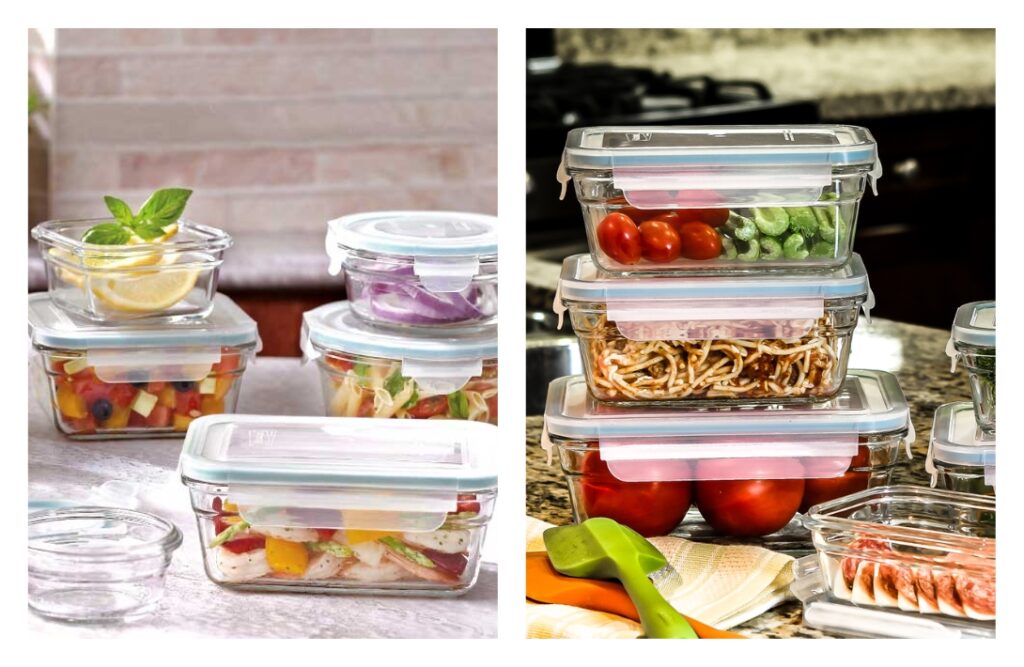
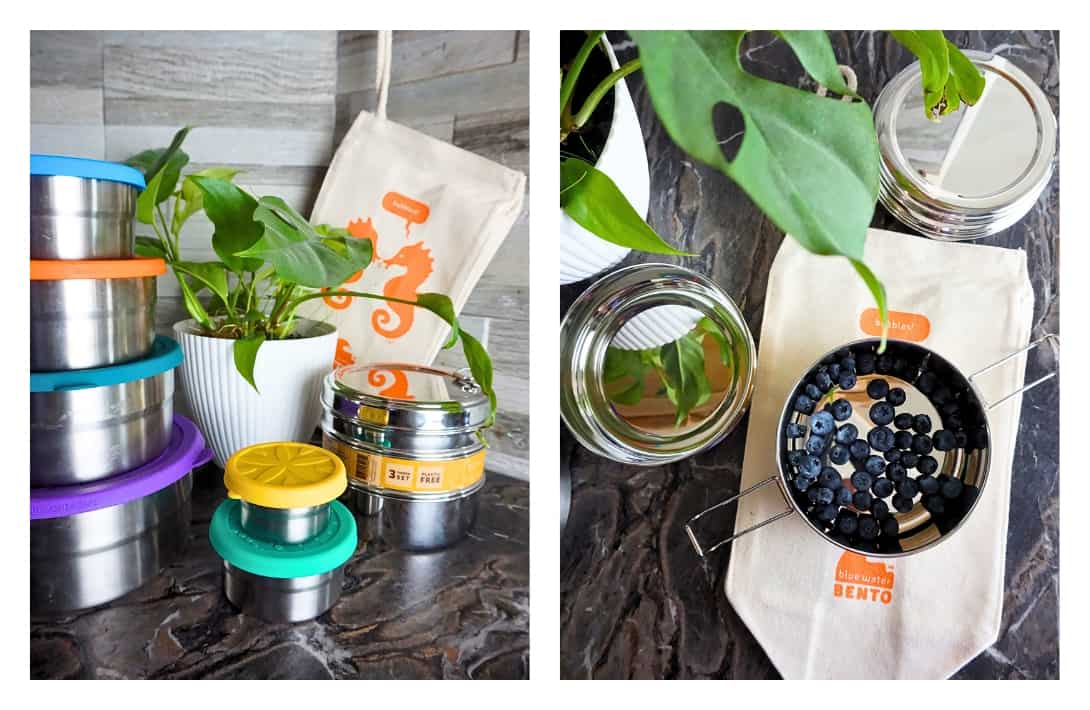
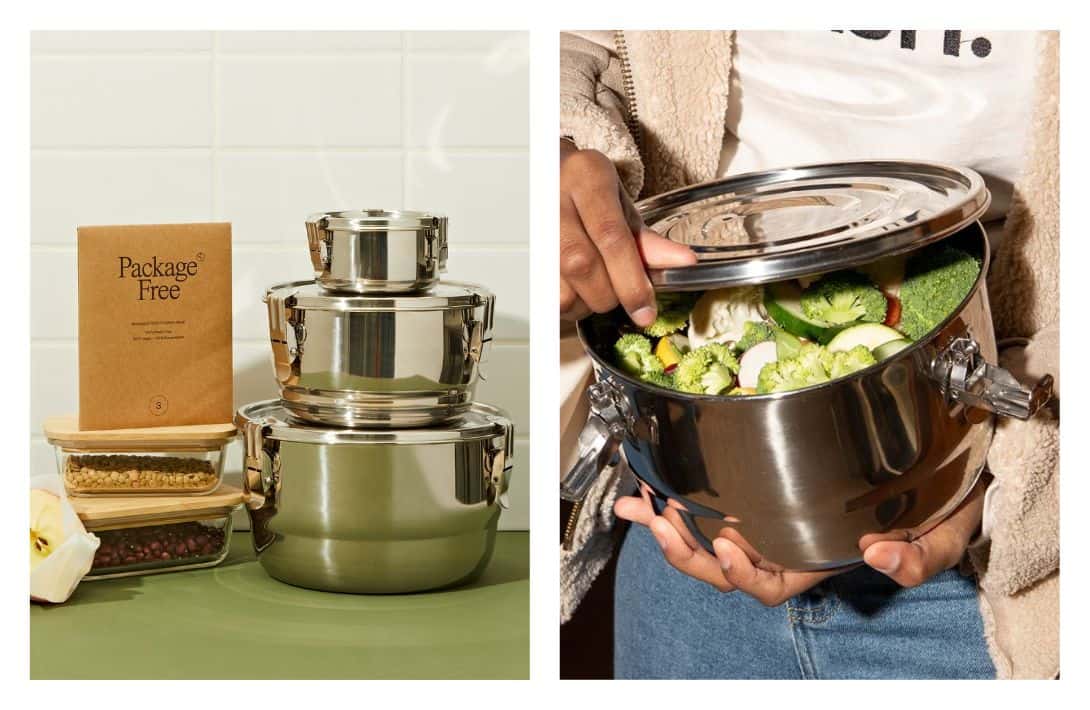
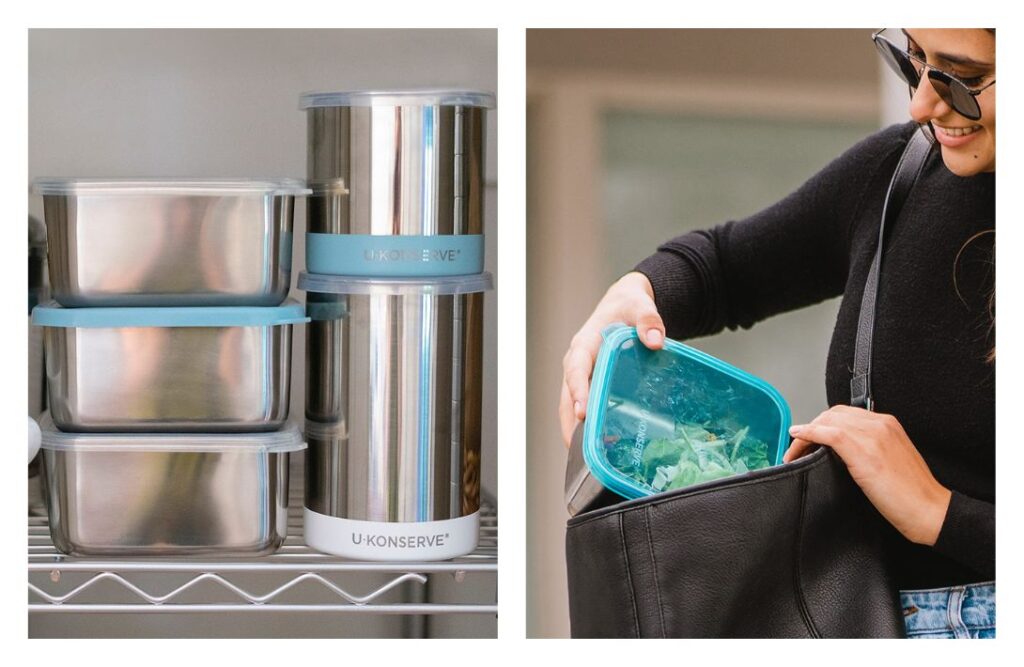
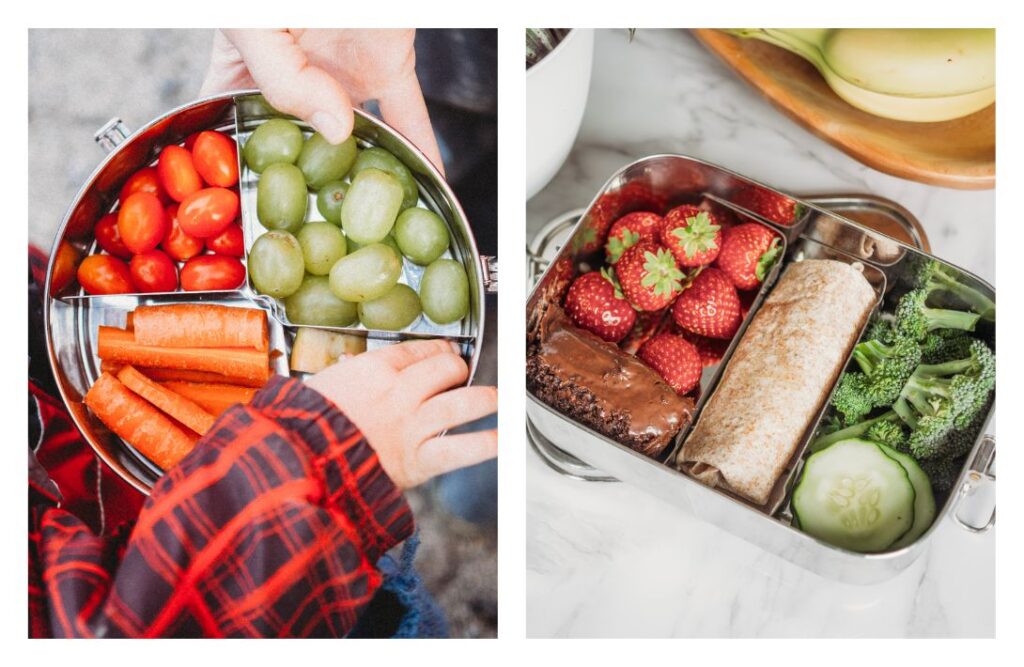
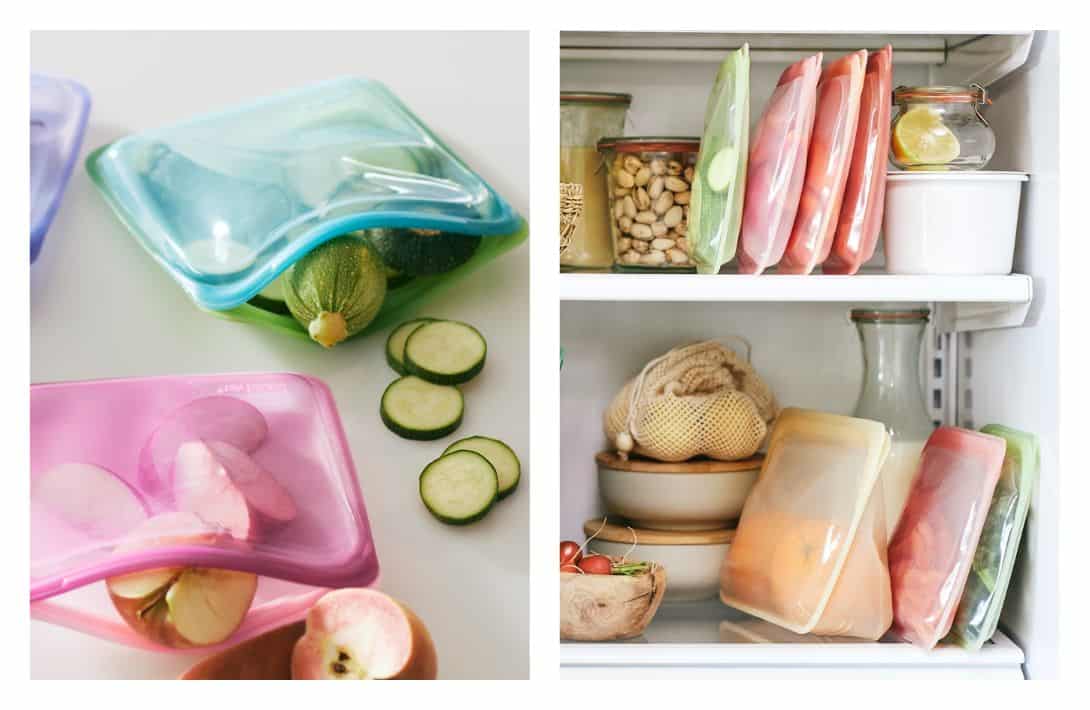
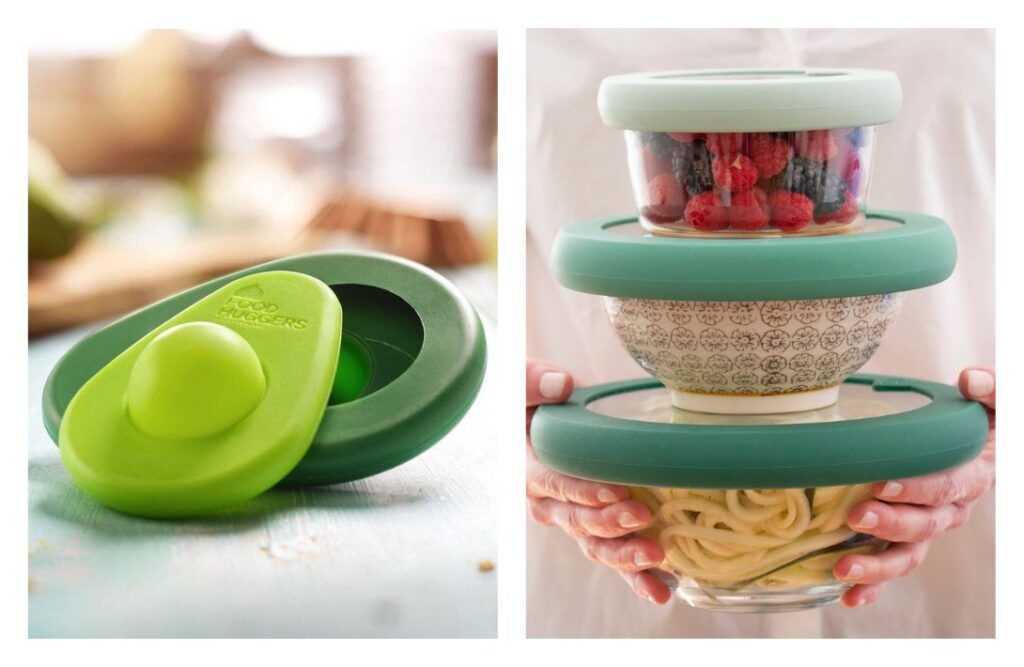
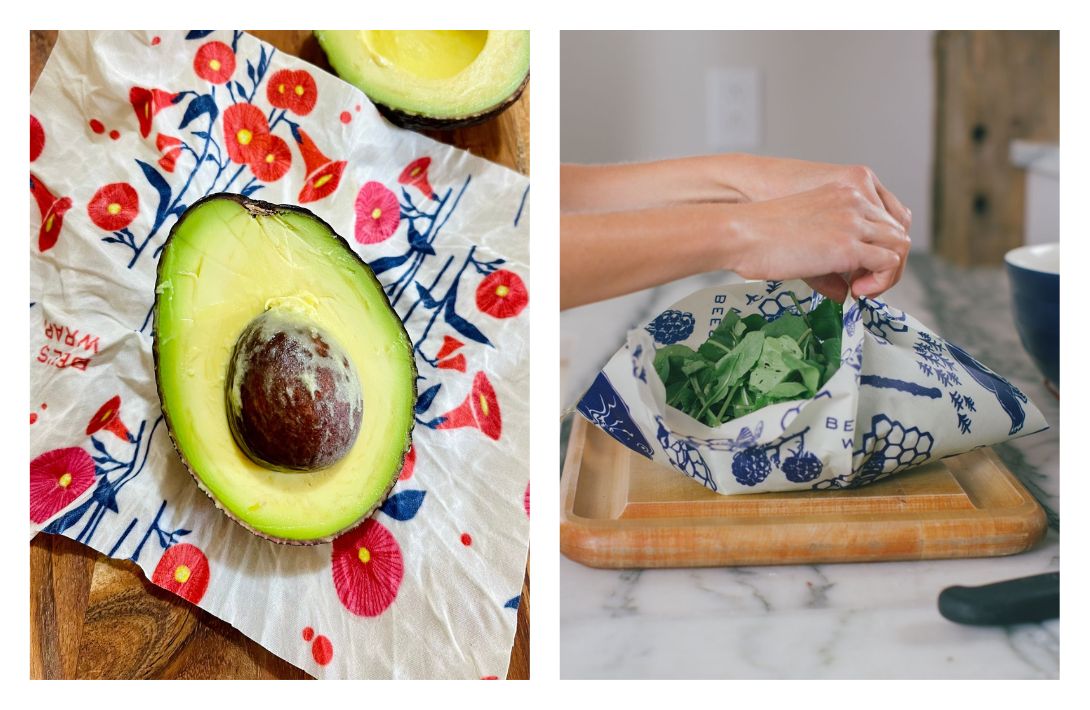

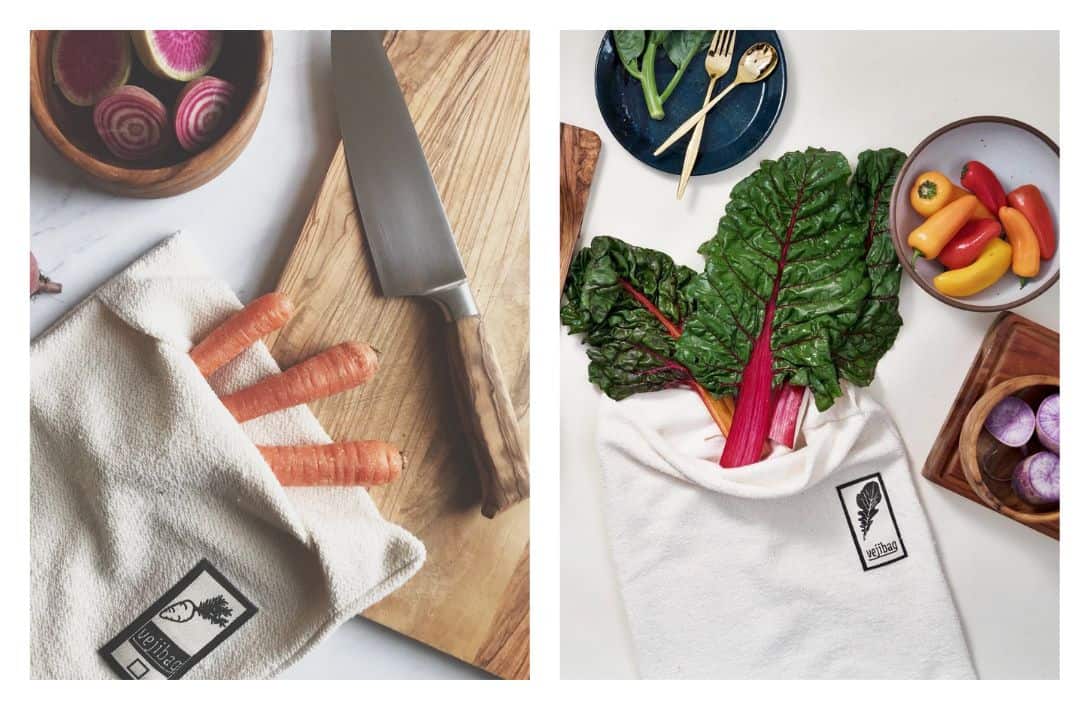
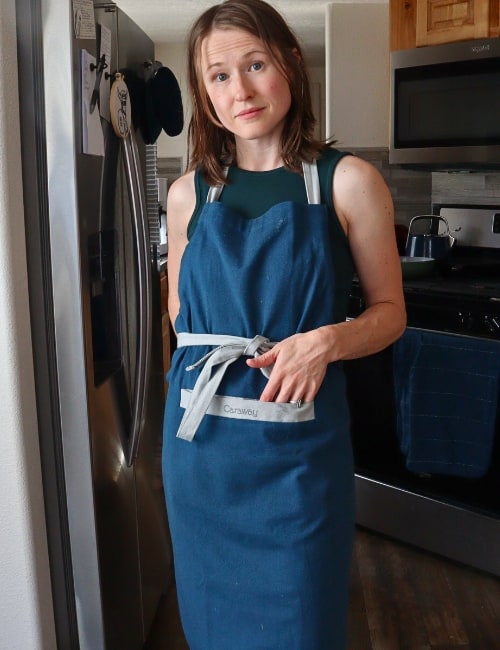
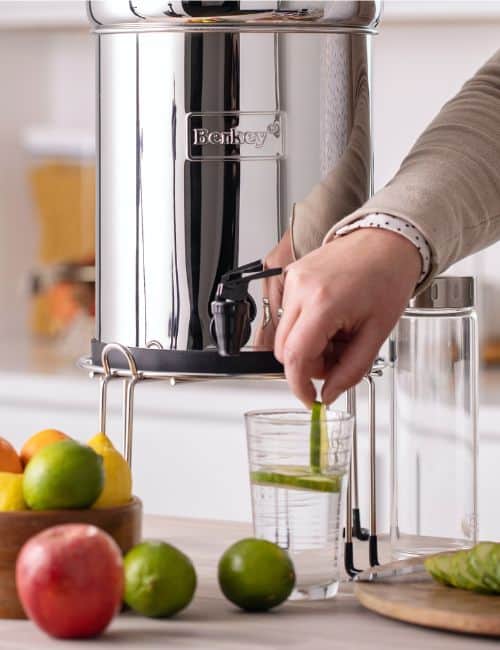
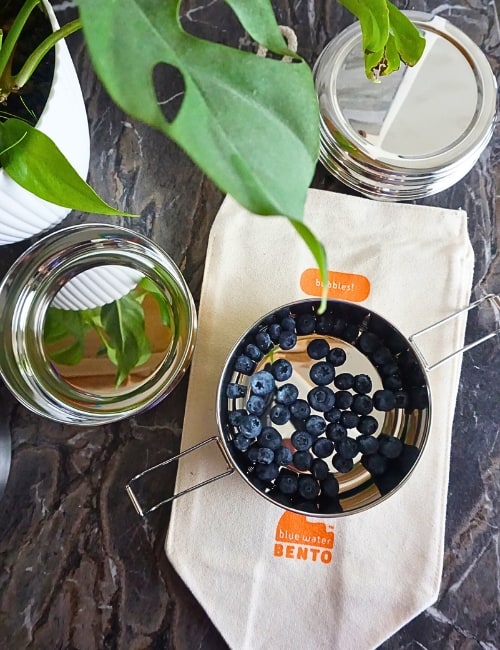
Glasslock uses plastic for its lids! Polypropylene is plastic.
Thank you for your post. Most of the ideas were helpful, but as people are moving away from plastic and trying to find a “healthier” option, why then would you offer metal as an alternative? Food grade metal is made of stainless steel, which is made with nickel, unless specifically noted. Nickel is quite harmful to humans and not a good “healthy” option. It should be avoided for food storage, cooking, or drinking containers. Just because a product comes from a health food store, doesn’t mean it’s beneficial. It might be a modern trend, that has not health value to it. Metal is good for making vehicles strong and such, but keep it away from your food. Wood, glass, and wax make good options.
At the same time, we will not live forever. I am careful with my food choices and such, to possibly prevent years of disease at the end of my life, but I have to trust God with that in the end. We need to worship the One-True God of the Bible and not get confused and worship creation. This would fix the problems we have in our world. God made the world and everything in it. The world was merely made by our Creator. Isn’t it more valuable to worship the Creator than the created!
Thanks for the input Rhonda, we’ll take another look on the next update.